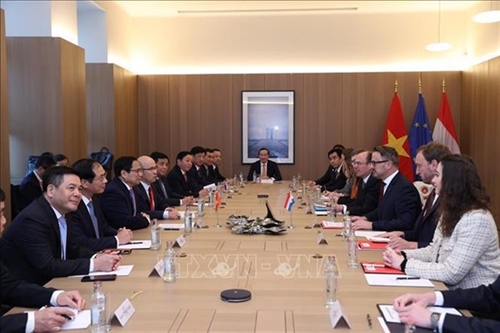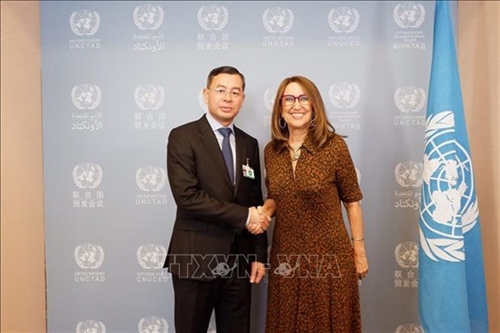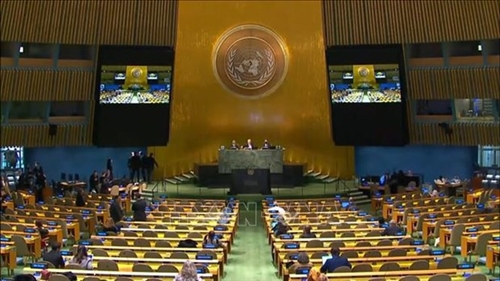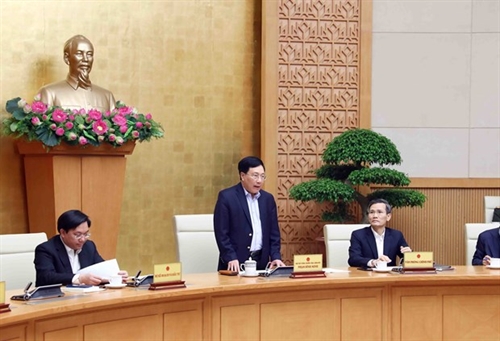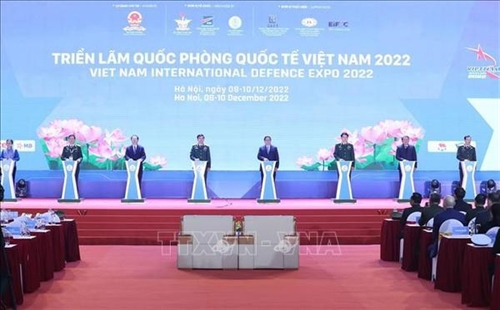The Ministry of Information and Communications (MOIC) is working on the draft revised Law on Telecommunications, focusing on such major policies as management of wholesale business, satellite telecom services, data center and cloud, and OTT and IoT service management as well as licensing of telecom service business.
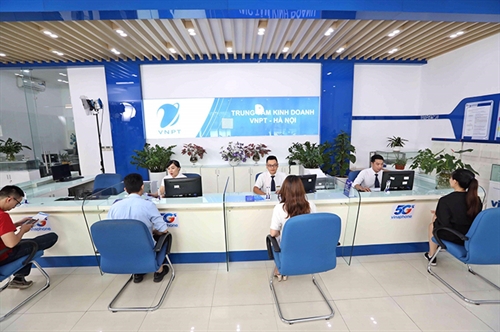 |
| A transaction point of Vietnam Post and Telecommunications Group (VNPT) Photo: Minh Quyet/VNA |
With 79 articles arranged in 11 chapters, the draft amends 24 articles of, and adds 17 new ones to, the 2009 Law on Telecommunications.
Under the draft, the scope of application of the Law would be expanded to cover also data centers, IoT connection, digital connection identifier and management of data center and IaaS business, in addition to traditional telecom services and management telecom business.
Regarding wholesale telecom services, the MOIC proposes following the management approach of boosting open access, facilitating market participation in order to develop new services and applications, and adding managerial tools in conformity with international practices and commitments.
In light of this, regulations on management of wholesale operations would apply only to important telecom services requiring pre-licensing management. Wholesalers must refrain from practicing discrimination, make public wholesale prices as well as terms and conditions of wholesale contract and declare prices with authorities. Particularly, providers of significant market power (SMP) services would also be obliged to wholesale their services to other enterprises at the latter’s request, make cost accounting, determinate the cost prices of wholesale services, and issue sample wholesale agreements.
As for telecom service licensing, the draft provides three forms of licensing: individual licensing, class licensing/general authorization and open entry. Accordingly, individual licensing would apply to cases requiring the establishment of telecom networks or greatly impacting the telecom market, user interests or safety and security. For these cases, licensing conditions and procedures would be tightened, e.g., safety and security conditions and network development commitments would be additionally required. However, the draft abandons the condition on legal capital, which is currently imposed on those applying for licenses to establish telecom networks, and adjusts the validity period of service provision licenses granted to enterprises having network infrastructure to be equal to that of network establishment licenses, which is 15 years.
For cases subject to class licensing, licensing conditions and procedures would be much simpler, meanwhile in the remaining cases, applicants would only have to fill in the registration form to go through licensing procedures.
Regarding satellite telecom services, the draft law is designed along the line of tightening the management of the services with the aim of protecting the domestic market and ensuring safety and security. Specifically, satellite telecom service providers would be subject to additional conditions, e.g., they must have technical plans that meet requirements of competent authorities so as to control and ensure security and urgently prevent and terminate the provision of services when required.
The draft adds one chapter on data centers and cloud platforms. It also revises definitions of telecom service and terminal device to be inclusive of IoT connection services. In addition, regulations on protection of rights of customers on new telecom platforms would also be improved.
The draft is scheduled to be passed by the 15th National Assembly next October.- (VLLF)


